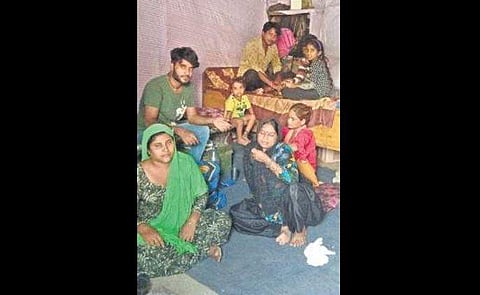

NEW DELHI: More than 95 per cent of Gadia Lohar households, a little-known nomadic tribe inhabiting the national capital, do not have a caste certificate that are considered key to avail the benefits of targeted government schemes, shows a survey report released by the Housing and Land Rights Network on Wednesday.
Historically, this nomadic community has suffered deprivation and marginalisation. Traditionally, people from the Gadia Lohar community earn their livelihood by manufacturing and selling iron tools and utensils.
The report ‘Mapping the Marginalised — Delhi’s ‘Gadia Lohar Community’ has surveyed over 55 settlements of the community in the capital.
Only 2 per cent of the households surveyed reported they had their caste certificates, it said. The community has been accorded a different case status in each state.
In Rajasthan, they come under the ‘most backward class’, thereby entitling them to one per cent additional reservation in government jobs.
The report has recommended that the Delhi government accord a similar status to improve their living conditions.
B Renke, former chairperson, National Commission for Denotified, Nomadic and Semi-Nomadic Tribes, said at the launch of the report that there is a need to provide traditional skill training to the community members so that they can hone their skills, passed down through generations, and engage in business.
The community has suffered multiple evictions over the years, adversely affecting their health, academic opportunities of their children, livelihood opportunities and their traditional occupation, the report pointed out.
Over 40 per cent of the settlements lacked access to clean drinking water and 75 per cent of the settlements surveyed lacked access to medical and healthcare services, the report said.
As a result, women face difficulties during pregnancies and childbirth.
Residents from 64 per cent settlements reported the absence of toilets.